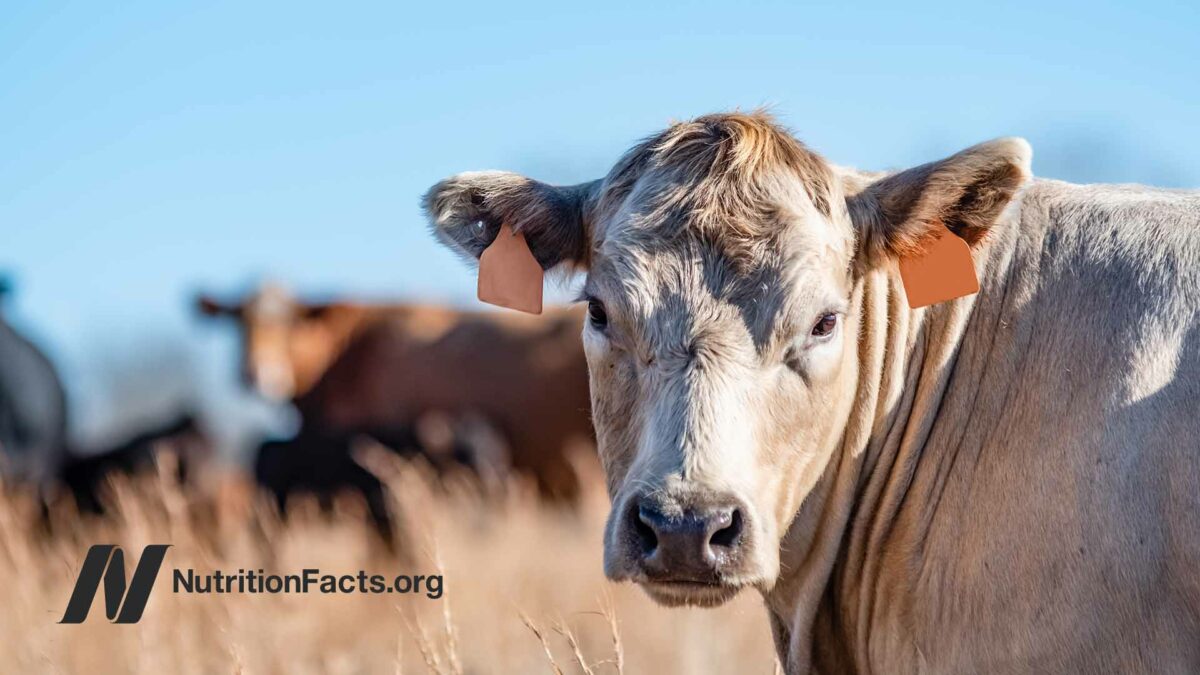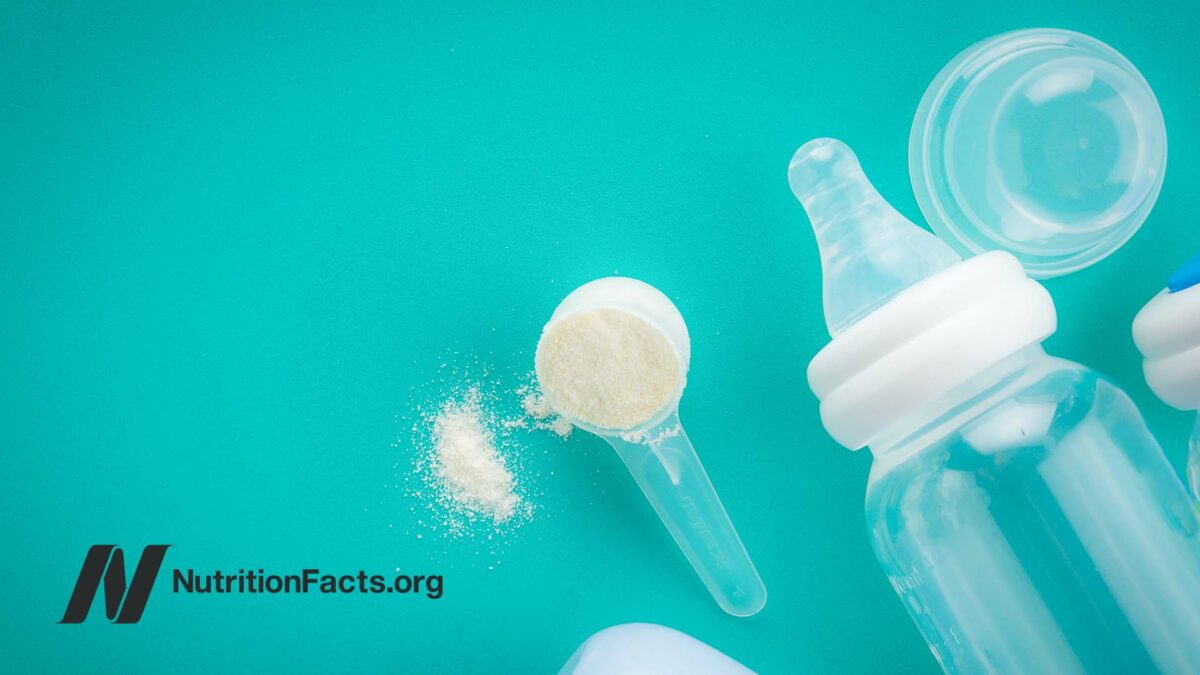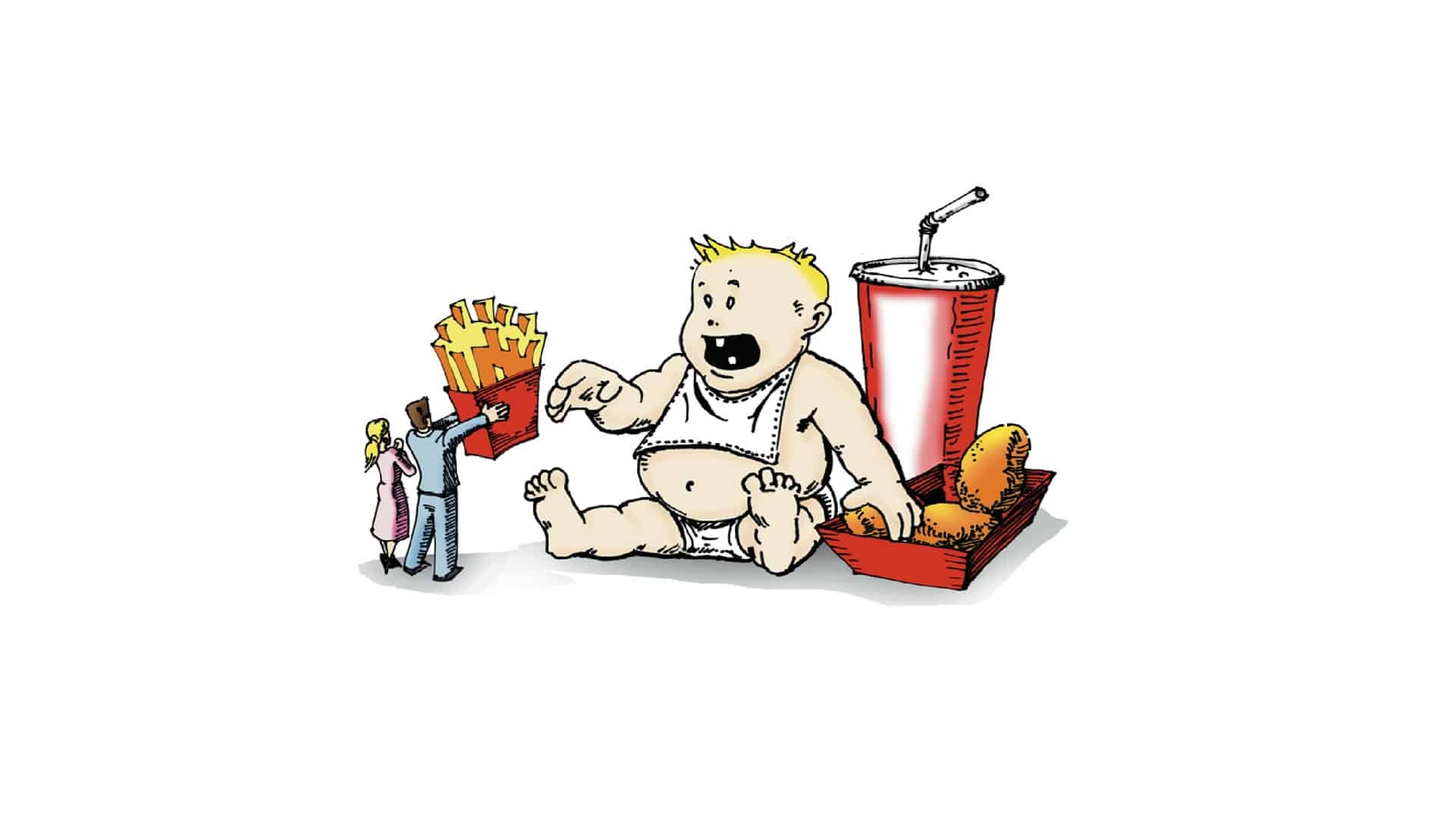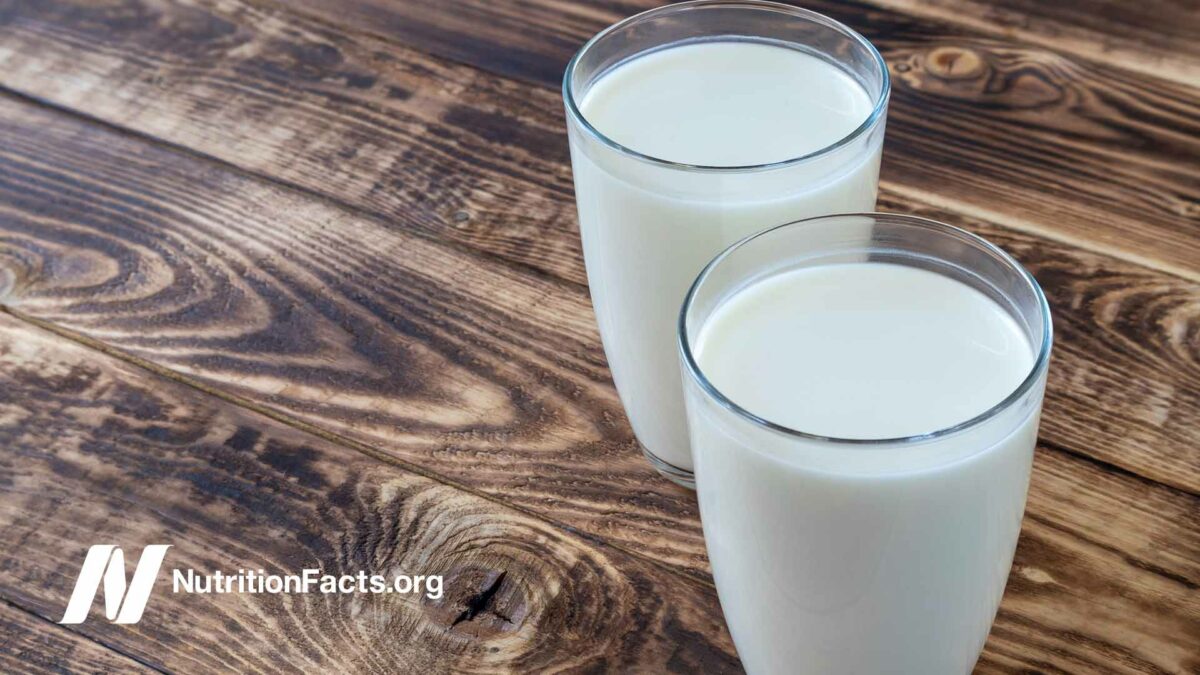
Children
In 1953, a study published in the Journal of the American Medical Association radically changed our understanding of the development of heart disease. Researchers conducted autopsies on 300 American casualties of the Korean War, with an average age of around 22. Shockingly, 77 percent of soldiers already had visible evidence of coronary atherosclerosis. Some even had arteries that were blocked off 90 percent or more.
Later studies of accidental death victims aged 3 to 26 found that fatty streaks—the first stage of atherosclerosis—were in nearly all American children by age 10. By the time we reach our 20s and 30s, these fatty streaks can turn into full-blown plaques like those seen in the young American GIs of the Korean War. By the time we’re 40 or 50, they can start killing us off.
Atherosclerosis may start even before birth. Researchers found that the arteries of fetuses whose mothers had high LDL cholesterol levels were more likely to contain arterial lesions, suggesting atherosclerosis may not just start as a nutritional disease of childhood but one during pregnancy.
Childhood obesity and childhood diabetes have risen dramatically. Over recent decades, the number of American children considered to be overweight has increased by more than 100 percent. Children who are obese at age six seem more likely to stay that way, and 75 to 80 percent of obese adolescents may remain obese as adults.
Childhood obesity may be a powerful predictor of adult disease and death. Being overweight as a teenager was found to predict disease risk 55 years later. Such individuals may end up with twice the risk of dying from heart disease and a higher incidence of other diseases, including colorectal cancer, gout, and arthritis. Being overweight as a teen may in fact be an even more powerful predictor of disease risk than being overweight as an adult.
For more, check out our Resources for Fertility, Pregnancy, Breastfeeding, and Early Childhood page.
For substantiation of any statements of fact from the peer-reviewed medical literature, please see the associated videos below.
Image Credit: Unsplash. This image has been modified.
Popular Videos for Children


Pros and Cons of Gluten-Free, Casein-Free Diets for Autism
What did the most comprehensive double-blind study of diet for autism find, and what are...
Best Food to Prevent Common Childhood Infections
The amount of beta-glucan fiber in just a dusting of nutritional yeast a day is...
Best Foods for Autism
The sulforaphane found in five cents’ worth of broccoli sprouts has been shown to benefit...
Fever Benefits for Autism in a Food
Dramatic improvements in autistic children when they have a fever suggest that the disease may...
Arsenic in Infant Rice Cereal
When it comes to rice and rice-based products, pediatric nutrition authorities have recommended that arsenic...
How to Treat Asthma with a Low-Salt Diet
Cutting two teaspoons of salt’s worth of sodium from one’s daily diet can significantly improve...
Meat Consumption and the Development of Type 1 Diabetes
Eating meat during breastfeeding is associated with an increased risk of type 1 diabetes, perhaps...
Is Obesity Infectious?
Given the role our gut bacteria can play in affecting our weight, having family and...
Should All Children Have Their Cholesterol Checked?
The current generation of American kids may be one of the first generations to be...
Does Casein in Milk Trigger Type 1 Diabetes?
Why might exposure to bovine proteins increase the risk of childhood-onset autoimmune type 1 diabetes?
Animal Protein, Pregnancy, and Childhood Obesity
What pregnant women eat may affect even the health of their grandchildren.
Does Bovine Insulin in Milk Trigger Type 1 Diabetes?
Is it the casein or the cow insulin that explains the link between milk consumption...
Maternal Diet May Affect Stress Responses in Children
Single meals can affect testosterone and cortisol (stress hormone) levels. Some foods eaten regularly during...
Heart Disease May Start in the Womb
Fatty streak formation occurs in human fetal arteries and is linked to the pregnant mother’s...
Flame-Retardant Pollutants and Child Development
PBDE fire-retardant chemicals in the food supply may contribute to attention and cognitive deficits in...
Formula for Childhood Obesity
Feeding infants cow’s milk formula may adversely alter metabolic programming.
How to Prevent Prediabetes in Children
Prediabetes is a disease in and of itself, associated with early damage to the eyes,...
Childhood Constipation and Cow’s Milk
The elimination of all dairy products was found to cure constipation in up to 100%...
Preventing Asthma with Fruits and Vegetables
A study involving more than a million kids suggests the striking worldwide variation in childhood...
Heart Disease Starts in Childhood
By age 10, nearly all kids have fatty streaks in their arteries. This is the...All Videos for Children
-

Perceptions of Childhood Obesity and Diet Quality
One reason kids may not be eating more healthfully is that their parents vastly overestimate the quality of their child’s diet.
-

Medicine’s Response to the Changing Science on Fluoride Safety
How did the medical and dental community react to U.S. regulators’ total 180 over water fluoridation, going from presumptively safe to presumptively dangerous?
-

Why I Changed My Mind on Water Fluoridation
Based on new research, the U.S. Department of Health and Human Services’ National Toxicology Program reached a draft conclusion that fluoride should be “presumed to be a cognitive neurodevelopmental hazard to humans.”
-

Is Water Fluoridation Safe?
There have been more than 50 studies showing an association between higher fluoride exposure and lower IQ, but is it cause-and-effect?
-

Side Effects of Water Fluoridation: Dental Fluorosis
According to the CDC, about a third of American children now have some form of cosmetic defects in their tooth enamel due to fluoride exposure, known as dental fluorosis.
-

Why Is There Fluoride in Water? Is It Effective?
Based on nearly 100 randomized controlled trials, fluoride toothpaste reduces dental cavity rates, but what about just adding fluoride to the water supply?
-

Benefits and Side Effects of the Pneumonia Vaccine
Randomized controlled trials have found that pneumonia vaccines significantly reduce the risk of pneumococcal pneumonia in people 65 and older.
-

Benefits and Side Effects of the Flu Vaccine
Randomized placebo-controlled trials show that flu shots can be extraordinary lifesavers.
-

The Side Effects of Human Growth Hormone as an Anti-Aging Therapy
Taking human growth hormone (somatotropin) may actually accelerate the aging process.
-

Is Soy Milk the Most Nutritious Non-Dairy Milk?
Soy milk is compared to dairy milk and other plant-based milks.
-

Is Six Hours of Sleep Enough?
Just because we don’t have evidence that there is a growing epidemic of sleep deprivation doesn’t necessarily mean we are getting enough sleep.
-

Plant-Based Pregnancy Outcomes and Breast Milk
The composition of breast milk is compared between vegetarian and nonvegetarian women.
-

How Much Erythritol Sweetener Is Too Much?
What are the maximum acute and daily doses for adults and children to avoid gastrointestinal effects?
-

Does Getting Enough Sleep Help You Lose Weight?
Even getting just one more hour of sleep a night may help with weight control.
-

Does Lack of Sleep Cause You to Gain Weight?
Those randomized to 8.5 hours of sleep a night lost significantly more body fat than those who got 5.5 hours.
-

How to Avoid the Boomerang Effect of Remedy Messaging
How can mandating healthy eating messaging on fast-food ads ironically make things worse?
-

The Side Effects of Burning Incense
Burning incense has been found to generate about four times the particulate matter as burning cigarettes.
-

Antibiotic Resistance Genes in the Guts of Vegetarians vs. Meat-Eaters
Those eating plant-based have a reduced load of antibiotic resistance genes in their gut.
-

The Impacts of Weight Bias in Health Care
How might weight stigma be a vicious cycle?
-

Weight Bias: Hating Their Guts
How common is weight stigmatization in health care?
-

Cancer-Causing NDMA in Medications (Zantac, Metformin) and Meat
Billion-dollar drugs pulled from the market for carcinogenic contamination less than that found in a single serving of grilled chicken.
-

Can Cholesterol Get Too Low?
Why might healthy lifestyle choices wipe out 90 percent of our risk for having a heart attack, whereas drugs may only reduce risk by 20 to 30 percent?
-

3-MCPD in Refined Cooking Oils
There is another reason to avoid palm oil and question the authenticity of extra-virgin olive oil.
-

Cannabis for Inflammatory Bowel Disease (IBD)
Even though cannabis smoking may help with IBD symptoms in the short-term, it may make the long-term prognosis worse.
-

Are Vegans at Risk for Iodine Deficiency?
Most plant-based milks are not fortified with iodine.
-

Elderberry Benefits and Side Effects: Does It Help with Colds and the Flu?
How effective are flu shots, elderberries, echinacea, and cranberries?
-

Lychee Fruit and Hypoglycin: How Many Are Too Many?
There is a toxin in lychee fruit that can be harmful, but only under certain circumstances?
-

Plant-Based Meat Substitutes Put to the Test
What are the effects of plant-based meats on premature puberty, childhood obesity, and hip fracture risk?
-

The Best Type of Vitamin B12: Cyanocobalamin or Methylcobalamin?
For prevention and treatment of vitamin B12 deficiency, cyanocobalamin in chewable, sublingual, or liquid forms (rather than in a multivitamin) is best under most circumstances.
-

The Optimal Vitamin B12 Dosage for Kids, Pregnancy, and Seniors
At age 50, everyone, regardless of diet should start supplementing with B12-fortified foods or supplements but over age 65 only high-dose daily supplements may suffice.
-

The Role of Epigenetics in the Obesity Epidemic
Astonishingly, a baby with a heavy surrogate mother and a thin biological mom may harbor a greater risk of becoming obese than a baby with a slim surrogate mom and a heavy biological one.
-

Do Vegetarians Really Have Higher Stroke Risk?
The first study in history on the incidence of stroke of vegetarians and vegans suggests they may be at higher risk.
-

The Immune System and COVID-19 Treatment
Are there immune-boosting foods we should be eating?
-

Social Distancing, Lockdowns, and Testing: How to Slow the COVID-19 Pandemic
What can we learn from other countries and the 1918 pandemic to slow COVID-19?
-

Are Melamine Dishes and Polyamide Plastic Utensils Safe?
I recommend glass, ceramic, porcelain, or stainless-steel tableware and wooden or stainless-steel cooking utensils.
-

Are Aluminum Pots, Bottles, and Foil Safe?
DNA damage is assessed in users of aluminum cookware.
-

The Role of the Toxic Food Environment in the Obesity Epidemic
Implausible explanations for the obesity epidemic, such as sedentary lifestyles or lack of self-discipline, serve the needs of the manufacturers and marketers more than the public’s health and the interest in truth.
-

The Role of Personal Responsibility in the Obesity Epidemic
How the power of the “eat more” food environment can overcome our conscious controls.
-

The Role of Marketing in the Obesity Epidemic
The unprecedented rise in the power, scope, and sophistication of food marketing starting around 1980 aligns well with the blastoff slope of the obesity epidemic.
-

The Role of Diet vs. Exercise in the Obesity Epidemic
The common explanations for the cause of the obesity epidemic put forward by the food industry and policymakers, such as inactivity or a lack of willpower, are not only wrong, but actively harmful fallacies.
